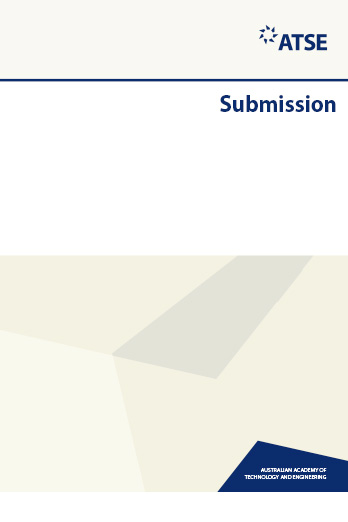Australia’s research system is a key contributor to Australia’s economic, social and environmental prosperity. The Academy encourages efforts to increase the efficiency and effectiveness of Australia’s research funding systems.
The Australian Academy of Technology and Engineering (ATSE)1 welcomes the opportunity to provide input to the House of Representative’s Standing Committee on Employment, Education and Training Inquiry into Funding Australia’s Research.
Key points and recommendations
- Basic, strategic basic and applied research are all essential parts of a productive and innovative research system that contributes to Australia’s economic, social and environmental prosperity.
- Australia’s gross funding for research and development as a percentage of gross domestic product is below the OECD average.
- In principle, the Academy supports efforts to reduce fragmentation and duplication in Australia’s research funding systems but Australia requires a diversity of research funding mechanisms in order to reflect the differences between fields of research.
- The Academy strongly supports the role of targeted funding to enhance collaboration.
- While efforts should be made to reduce administrative burden, the development of grant applications and research proposals is an intrinsic and valuable component of the research process.
- It is too soon to fully evaluate the impact of the changes that have been made since the Watt Review.
- The operation of a robust, independent peer review system is a vital process for quality control that ensures that Australia’s limited government funding for research is directed to high quality research.
- The ARC should publicly report the percentage of grant applications judged as internationally competitive that are funded in each round to provide a metric of the adequacy of research funding in Australia.
- It is essential that Australia’s research funding mechanisms are designed to support diverse and inclusive research communities, and foster the career development of early-career researchers.
